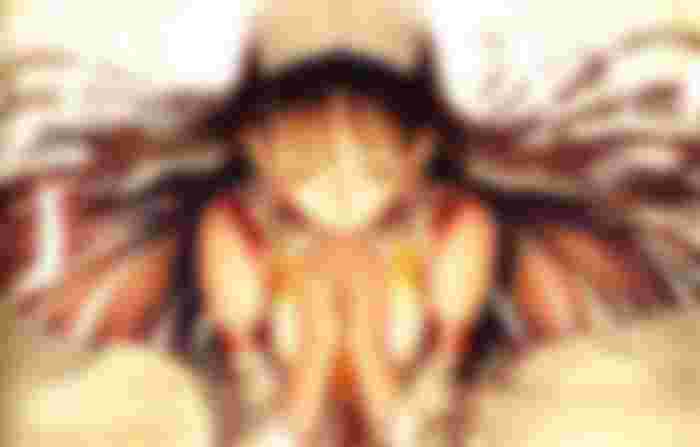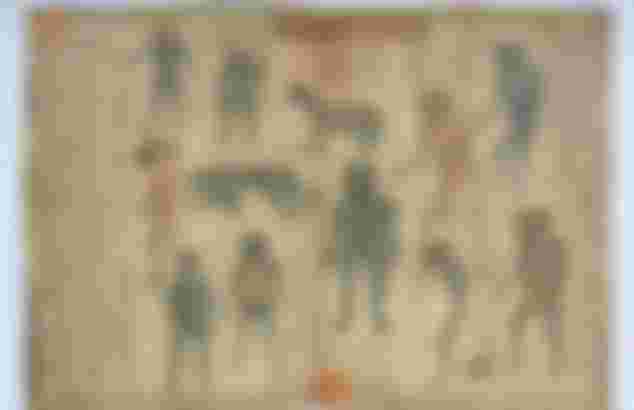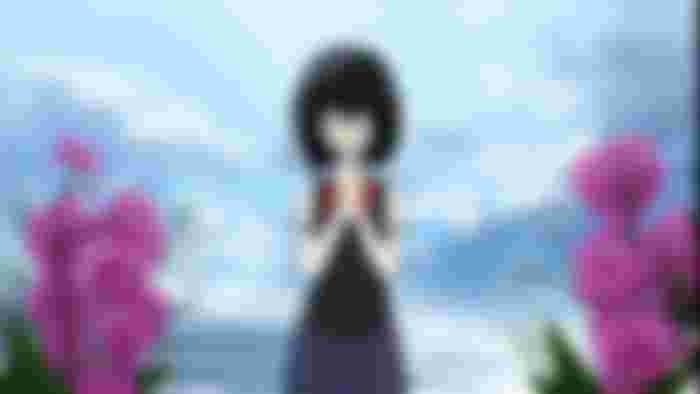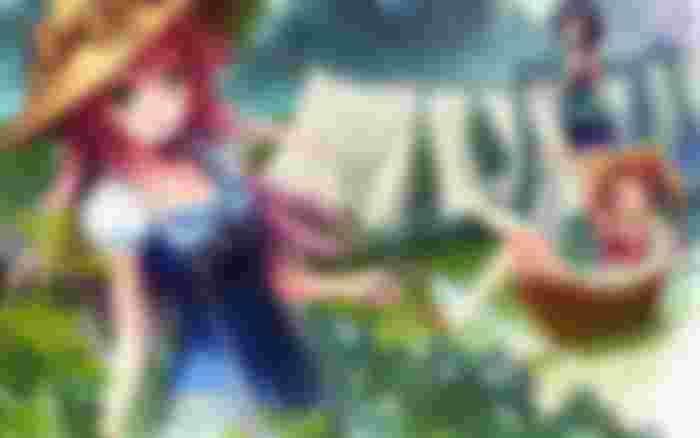When people visiting Japan, or watching a Japanese, or Asian martial arts film, they see a lot of seemingly spiritual acts. Even when they aim with an arrow, can be seen as a spiritual act by a westerner. This is due to the fact that everyone is viewing the world through his own glasses. For a westerner, such acts are spiritual or religious, therefore, a westerner will view those acts as religious acts as well. In reality, the overwhelming majority of these acts have nothing to do with religion. The spiritualism of Japan and some other east Asian countries are fundamentally different from the spiritualism of the west. This article will explain how.
First, understand your own
To understand the spiritualism of Japan, you must first find and understand your own spirituality. For a westerner, Christianity (also applies on Muslims and so on) is part of the soul. Even if he states himself as a non-believer, everything he does is processed through religious values. Religion is not just a set of values or a series of stories, the spirituality is a way to connect the soul to god. After understanding the religious stories, understanding how the spirituality works, if someone decides to pray and think a lot of them, and applies them in his life, he is indeed able to find his soul, and to find god.

Gods in Japan are just deities
Of course, some Asian cultures have similarities with this. Buddhism have sort of similar values, similar phases of enlightenment, and sometimes, similar basic commandments (such as banning to WANT things, as that causes suffering). It's interesting to know that a majority of the Japanese people claim to practice Shintoism (70%) and Buddhism (70%) at the same time, while they don't really practice any of these religions in reality. Other surveys say 70% of Japanese people don't have any religion. However, the Japanese mindset is Shinto-based. This religion is based on deities. Shintoism is not similar to Christianity or Buddhism, it's more like a traditionalism combined with a tiny bit of spiritualism (if any). The Japanese mythology, which is the base of Shintoism, has many deities, called yokais, and various ghosts and spirits. In Shintoism, Japanese people are praying to these creatures.

Fundamental difference of function of deities
These little deities are not really gods. People don't take them seriously. When Japanese go to a jinja (shrine) to pray to these deities, then they don't view them as leaders, or part of their soul. This would not even possible: an imaginary foxgirl who has sex with men, or Kappa (the riverchild) who kills people for their tiny assball (shirikodama) are not worth of being real gods. There are various jinjas dedicated for various deities (both evil or good); with monks, however, their function is more to give protection from spiritual forces and preserve traditions. Sometimes, they even build a local jinja where people can satisfy the local ghosts. When people in jinjas pulling ropes, washing their hands, and so on, they don't fuse their soul with these ghosts, they don't create a connection to the soul of these deities, and they don't dedicate a life path to awaken the soul for these deities. Therefore you can see that Japanese spirituality and Christianity are totally different worlds with totally different functions, and they are not comparable with each other.

Japanese people (don't) understand your Christianity
As strange as Japanese jinjas are for you, as strange is the church for the Japanese. Japanese people understand what Christianity is, but they don't understand it at the same time. They understand what you are doing, but they will not understand why you are doing it. When Japanese experience Christianity, they will just assume that you are praying for the soul of dead people. They understand that besides this, Christianity is some kind of path, but the religious and spiritual concepts of Christianity as a whole, is alien to them. If they start to research it, they will interpret commandments as talking about lifestyle tips, Bible stories as random Middle Eastern and Mediterranean folk tales, Christmas as a nice religious display and a way to express love to others. However, they will not understand that this is only the surface, and beyond it, people are building up their soul with praying and researching religious stories to touch the face of god. Intellectually, they will probably know about this, but the concept is too foreign for them to really understand it.

For most Japanese, Christianity is about buying Christmas lights
Therefore, when a Japanese wants to show respect to the Christian culture, he will buy Christmas presents to his friends and decorate his house in two dozens of Christmas lights, because that's what he has seen from the media as a way of some kind of praying. For him, that's it, Christ was treated as another deity whom he satisfied. He actually showed respect, so if you observe a Japanese doing like this, think of that in his culture this is the way to show respect. But do not expect a Japanese to actually understand the underlying spirituality. If you start to talk about religion with a Japanese, be extremely patient, as the Japanese will have a totally different mind-set; it will be very hard to explain even the simplest concepts.
Gods in Japan are similar to gods in ancient Greece and Rome
Before the arrival of Christianity, Greece and Rome had similar gods and deities. There were various shrines for the major gods, such as Zeus, Poseidon, Neptune, Hera, Jupiter, Juno. These are similar to the Japanese deities in function, but they are more human-like. People used to pray to them in dedicated shrines, and the function of these prayers was similar to the prayers in today's Japanese jinjas. Similar, deity-based cultures existed all around the world, such as India, Middle East, and Africa.

Microcosm and Macrocosm in old Greece
In Greece, old philosophers divided the connection of the human mind with the world into two parts. Microcosm is the internal, small, private world of a person. It can be viewed as some kind of container for the soul, or a machine with a job to create a comfortable place for the soul to live in. Macrocosm is the larger world around the individual. The person is in connection with other people through the Macrocosm. The Microcosm and Macrocosm are in harmony with each other.
It's similar in Japan
In Japan, religion lacks spirituality; similarly to ancient Greece and Rome, the Microcosm and Macrocosm are very strong. If you even wondered why it is not polite to make phone calls on the train, you have your answer now: because you disturb the Microcosm and Macrocosm of others. In the Western culture, religion comes before the Macrocosm (maybe even before Microcosm in some cases), but in Japan, the Microcosm and Macrocosm have priority. Some of the spiritual forces that are missing from the religion are filled into the Microcosm and Macrocosm.
Obsessed with the place in the Macrocosm
This results in a very hierarchical society (back then, some Catholic cultures were also very hierarchical, but for different reasons). Society has high expectations of you. If you can't fulfil these expectations, society declines you. In the Japanese culture, the goal of education is not just to learn about things, it automatically grants you a better place in the hierarchy (of course this is true for every culture to SOME extent). The concept of business and capitalism is far from the Japanese soul even if the society itself is capitalistic. In the West, you can be a basement website builder for example, but the Japanese mind-set can't really do anything with this type of people. Therefore, if people fail, they cannot channel their creative energies into earning money within the rules of capitalism. They are either a part of the society or not, which results in the phenomenon called hikikomori.
The hikikomori phenomenon
Hikikomoris are people, usually young men, who close themselves out from the society, closing themselves into their rooms, not going to school or having a job, not earning money, not interacting with society itself. Japan can't really do anything with them; their strategy focuses on forcing them to have a job. In Japan, jobs are the focal point of the Macrocosm. For example, a real job is called shigoto; however, a part time job is called arbaito (from German arbeit), which shows that the concept of profit oriented business is foreign to the Japanese culture. They didn't even have a native word for it, and in the same time, they don't consider it as a real shigoto, so they had to find a new word for it. Meanwhile, in the West, the only purpose of a work is to pay bills and to being able to buy stuff, and nobody really cares.
Obsessed with being clean
Basically, Westerners usually buy a few clothes, maybe one or two per year. You buy some jeans, or you buy some flannel shirts. Not super expensive ones, but quality ones. A Westerner typically have maybe 3-4 jeans, 3-4 shirts, 5-6 t-shirts, a few pullovers, 1-2 jackets, and so on. All the crap fits basically in two cabinets. People wear these for a week, or two, or whatever; if it gets too dirty, or stinky, they wash them, maybe starting the washing machine once or twice per week, and using hot water when they wash it. The typical Japanese culture is different. Outlooks are part of the Macrocosm of the Japanese, and they take it seriously. Men are forced to shave on most of the workplaces.

Clean clothes
Most of the Japanese tend to buy all the crappy $5 clothes they see (for $50 or even more overpriced). They hoard hundreds of clothes. The quality of these clothes are very bad, they disintegrate quickly, as if they were sewed from Chinese plastic trash bags. They buy these clothes again and again, wasting their time and money. This eats up the places in their homes, it could end up converting the house to a cloth-cemetery. The biggest problem is, however, that they wear multiple one of these clothes daily, and they are washing EVERY DAY. The washing machine goes for almost all the day; people are slaving for the washing machine. Of course this would be an economic disaster if they would wash it in hot water, so Japanese washing machines don't have an internal heater, they wash their clothes in cold water. In contrast, in the West you can work all the days on your farm, you can be dirty and stinky, yet you go to a random store on the way home to buy some food, and nobody will look negatively at you. Here, they honor your hard work and you are a praised member of society. In Japan, if you do this, they will either throw you out from the store, or they will really, really dislike you.
Obsessed with work and drinking nights
Overworking and drinking nights are about posing. These are not real friendships, and it's not a real commitment for the work place. They are part of the Macrocosm, which is overvalued in Japan, compared to the Christian world. In the West, you instantly escape when the bell signals the end of the 8 hour working-day, and nobody will see or hear from you till the next work-day. In Japan, co-workers are expected to stay after official working-time. This makes Japanese to work too much, and they sleep too little. A typical Japanese sleeps only 6 hours a day, compared to 7-8 hours for a typical European. This also results in a very low productivity rate; currently, the productivity of a Japanese worker is smaller even than an East-European worker. The Japanese, even after the work, are expected to go to drinking nights together. To secure your place in society, you're expected to drink sake and sing karaoke with your co-workers, even if you hate it. Of course, nobody forces you to do it, you can skip the karaoke nights and can leave after your official working-time ended, but others would view you as a freak.
Obsessed with the place in the Microcosm
Some spiritual energy will be channelled into sustaining the Microcosm. If a Japanese makes video games, samurai swords, or just model cars, or anything, some of the spirituality will be channelled into his creative process. In some cases, his profession itself is going to be treated as holy. For example, in old times, some Japanese, when they got professionally humiliated, committed seppuku and harakiri. Nowadays they don't do that, however, if someone feels that someone tries to destroy the spirituality of his Microcosm, it can result in a violent counter attack. There was a very sad case when someone burned the Kyoto Animation Studio. The person was a train photographer, who invented a method of photographing trains, called barisaku. He got even nicknamed Barisa-Kun, and he became famous. However, one Anime of Kyoto Animation about musician girls, called Hibike no Euphorium, used the similar phrase (barisaku) to describe some music elements. Barisa-kun felt intimidated by this, he tried to force the studio to stop using his phrase. Once the studio put posters in a metro tunnel about this anime, Barisa-Kun decided to perform a terrorist attack against them by arson. The studio of Kyoto Animation, internally, was built from wood with a lacquer layer, like some sort of dark age fantasy castle, to stimulate the creativity of the workers. Everything caught fire easily, and the terrorist killed dozens of people (the goal of the terrorist was to kill the artists, so he burned the building during working-time).

picture: Former studio of Kyoto Animation
Disharmony of the two cosmos
The strong Microcosm and Macrocosm can result in good things, such as a lot of great anime and great martial arts, but it also can be the cause of very bad things. When disharmony occurs in the Micro- or Macrocosm, it will cause more harm than the disharmony of a Westerner's Micro- or Macrocosm. Overworking, combined with towers of clothes, and spiritually fueled aggression if someone's profession or hobby is dissed, can quickly cause a toxic environment at home. To avoid this, the Japanese have to take care of their Micro- and Macrocosm more than a Westerner does.
Individualism of the west
In comparison, the basic state of a Westerner's mind is individualism. As the spiritualism of a Westerner will mostly be channeled into religion, he will not burn a studio down if he feels that his hobby, business, or profession is challenged. Compared to Japan, these kind of debates will be less aggressive, unless notable quantity of money is involved. In Japan, these types of disagreements will quickly fuel complex conflicts.
West is better in this aspect, but worse from other aspects
An American, European, or North African will not kill 30 anime artist because they stole a phrase. But they will do it for the sake of religion or religious spirituality. So if you are a Japanese, who wonders why someone explodes a bomb for the sake of religion, do not think on Kappa and random Fox-girl yokais as gods. Think of Barisa-Kun's motivation, and then you will sort of understand. Terrorism In the West is mostly based on religion (sometimes on racism). If someone's soul is spiritually awakened, it will not sleep any more. If something is a threat for this religious spirituality, then a Christian, a Muslim, etc, will act, normally in a non-lethal way.
In Japan, girls are the wizards
In the Japanese culture, the wizards are usually girls (maho shojo, majoku). These girls possess magical powers until they reach a specific age. After this age, they slowly lose the ability to perform magic (in some cases, they keep the powers). This wizardry can be positive or negative, but usually positive. The girls can use their magic power to destroy monsters and enemies. This means, spirituality in Japan is considered a women's thing. Magic is a very feminine force. Therefore, spirituality and magic is sometimes linked to sex. A lot of hentai have a spiritual backstory, however linking these two things is very uncommon in the West. Male versions of wizards exist in Japanese culture as well, for example in folk tales, but they are less common.

Picture: Jewelpet Tinkle, a popular Maho Shojo anime
In western and eastern Europe, old women are the wizards
In contrast to East Asia, where young girls performing positive magic, the magicians of the Western culture are old women. These witches are evil in almost every case. In Slavic culture, these witches are linked to midwives (bába), making the category of Baba Yaga-type witches. In Western Europe, these old women are usually living in forests, and try to lure in and kill innocent people to eat them, or to use them as slaves. The wizards and witches in western folklore are always evil. Christianity, in its early times, also portrayed wizardry as evil, even burned accused witches and such) The major difference between the two cultures is, that in Japan, the witchcraft is almost always positive, in Western Europe, it is almost always negative. Both cultures have in common that witchcraft is considered a women's thing.

In Hungary, boys are the wizards
The world is not binary, there is for example Hungary. In the Hungarian culture, young boys are the wizards. In similar fashion as in the Japanese culture, these young boys are protecting the world with their magical powers. They can freely enter and leave the underworld to fight monsters, devils and demons to protect our world. In the original Hungarian culture, god is evil. There was only one god (Isten), who was evil; he was living in the underworld. From time to time, he tried to infest the human's world with fake spirituality and insanity, and these magic boys existed to stop him from this. The Hungarian folk tales revolve around a desperate battle against a dark god, who wants to devour the human world, which is the last bastion of reason and sanity.

Later on, when Hungarians wandered from Asia to Europe, the real God revealed itself to one the leaders. One of the daughters of the leaders saw a dream, where she got impregnated by God, and God told her, that her child will be the new leader of Hungarians. Everybody laughed at her, and after the child was born, he was called Álmos (meaning sleepy/dreamy). Later on, God spoke to Álmos in his dreams. God showed him a dream: there were evil black birds attacking the people who left a tent. And then, out of nowhere, two strange birds appeared, killing the black birds, and flying into a specific direction. Then god explained to him: all Hungarian people must follow those birds, otherwise, they will get eradicated. Álmos was thinking a bit on the dream, then he decided to reveal it. Next day, the leaders had a meeting, he told his dream to the other leaders. They laughed at him. However, after they have stepped out from the tent, the events of the dream really happened. Black birds attacked the people, and then two mystical birds appeared, killing the black birds, and then they flew away westwards. The leaders were shocked, and agreed to continue the journey to the west. It was hard to convince the people. Who would believe such a story? Actually, almost half of the people didn't believe in it, and only half of the population moved to the west. The bird in the dream was a Turul bird; the western habitat of the Turul bird is the current location of Hungary. Later they sent ambassadors to the remaining Hungarians to convince them to move to the modern day Hungary. However, they only found dead and dissected bodies, an unknown enemy had killed every single person who remained there.
After this, Hungarians accepted Christianity, with the positive version of Isten (GOD) and the negative version, Satan (sometimes called Ördög, or referred to as a bad version of Isten); both based on the letters S T N, as a positive (Isten) and negative (Satan) version of the same entity.
From the Bible, we learn how to access our internal magic
I have inserted the long explanation of the witches and magicians, to illustrate the spiritual development of cultures. In the Western cultures, witchcraft is practiced through Christian spiritualism, with our soul, and through God. In the Japanese culture, witchcraft is materialized through the Microcosm and Macrocosm. Asian martial arts, some Asian sports, and some Asian hobbies can be equated to some sort of witchcraft that is detached from direct spirituality, and got linked to traditionalism; while in the West, witchcraft and wizardry is practiced through the grace of god. As I have already mentioned, you must be very patient, if you talk to a Japanese about your religion. As he has a totally different world-view, he would maybe interpret your speech as some sort of sectarian recruitment. For a regular Japanese, Christianity is like watching x-files.

Japanese people are scared from religious spirituality
If you talk to Japanese people about your spirituality, they can consider you insane. For example, a Hungarian, living in Japan, told to his wife about a spiritual vision of him. The wife almost divorced him, thinking he was insane. Religious Westerners, when they talk about spirituality, consider these visions as magical revelations of god. The Japanese would send one another to a mental hospital for such things, and they would watch you with very strange eyes if you explain to them about spiritual revelations. As in their culture, religion and spirituality are detached from each other, they will view such stories as schizophrenic mental illness.
Actually, they have their spirituality already
Japan has Buddhism, which is quite similar to Christianity. In Buddhism, the spirituality is linked to religion as well. However, Buddhism is a side-religion in Japan, and they only practice it like as they do with Christianity (Christmas lights). Also, you must understand that everything I have explained in this article is a generalization. There are people who have strong religious spirituality in Japan too, and there are people who detach the two things from each other in the West as well. This doesn't explain anything about a particular person. Also, if a Japanese asks you about Christianity or spirituality, he probably knows a lot of it, he just needs someone to talk to about this topic, and he doesn't really need an education about this.
Both the west and the east is suffering from a spiritual crisis
Currently, both Christian and Japanese cultures have issues with spirituality. One of the symptoms of this is the extreme feminism that causes sub-replacement fertility rates and the oppression of men. People are questioning and throwing away traditional values, and want to replace capitalism with socialism or communism. These are all the symptoms of missing spirituality. Some Japanese anime is also a desperate attempt to create something spiritual. One of the great examples is Shakugan no Shana, another one is Enen no shoubutai. These animes create their own occult religious world, where girls are fighting against the monster-world. There are other notable ones as well, such as Ao No Excorcist, although that is based on Christianity, and it only has a small Shintoist influence. Both West and East try to re-define spirituality. The West is trying to copy the East, the East is trying to copy the West. For example, Westerners are fascinated by karate and judo, while Easterners are interested in kick-boxing and MMA.
The Japanese learned how to separate traditionalism from religious spiritualism
To sum it up, the Japanese learned how to separate religion, spiritualism, and traditionalism. This has upsides and downsides. Be careful when talking about spirituality or Christianity, if someone is interested in it, he will ask about it, don't try to force your views on others. If you do them properly, Christian praying and Buddhist meditation is essentially the same; the results are also the same.

(Special thanks to Mictorrani, who helped to fix the grammatical errors in the article.)












I approved this to Japanese Art & Cultural History (7c1f), but if you want to keep it here, there are quite many things you need to fix, otherwise I will have to remove the article again. It is too much for me even to list here. The whole text has to be worked through. There are so many small language errors. Also many missed apostrophes, capitalisations, etc. For instance: nationalities and religions are always capitalised in English.
Then you use "religional". Do you have any special reason to use that term? It doesn't even exist in proper English, I suppose you mean "religious", but if you have any special reason to use that specific word, I'm willing to listen.
But please work through the text and try to get the language right. After that, I will look again and then perhaps I can point out if there are still errors remaining. As it is now, it is just too much for that.